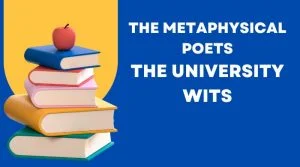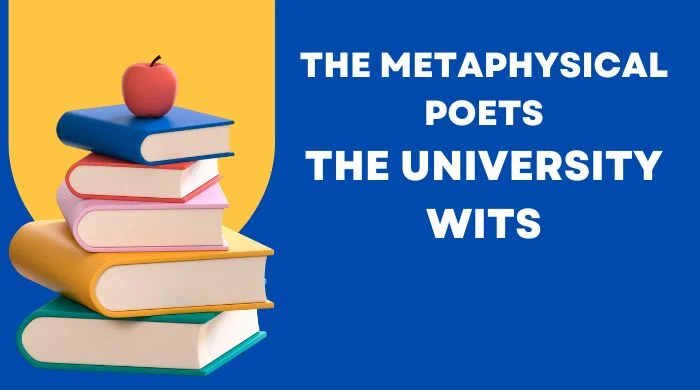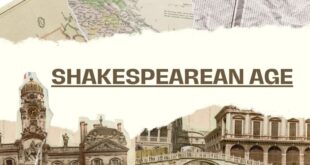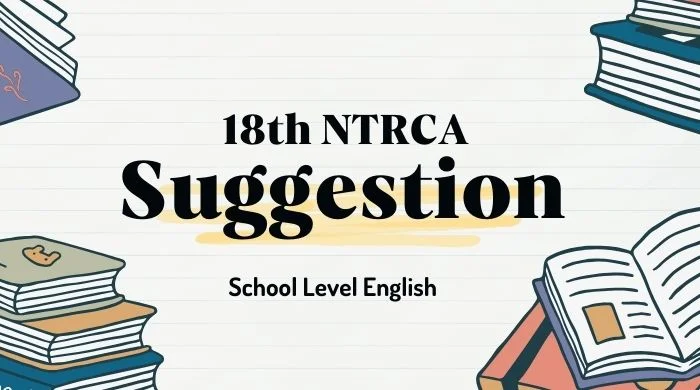Discover the intriguing world of Metaphysical poets, a group of 17th-century English writers known for their inventive use of wit, elaborate metaphors, and deep philosophical themes. Explore their unique style, characterized by complex imagery and intellectual exploration, which challenges conventional poetic norms and delves into the nature of existence, love, and religion. Uncover the works of prominent figures like John Donne, George Herbert, and Andrew Marvell, whose innovative approaches continue to influence and inspire modern poetry.
Who are The Metaphysical Poets
The term “Metaphysical poets” was coined by the critic Samuel Johnson in the 18th century to describe a loosely connected group of poets whose work is characterized by the following features:
- Complex Imagery and Metaphors: They often used elaborate and surprising metaphors known as “conceits.”
- Philosophical and Intellectual Themes: Their poetry frequently delved into topics such as existence, love, religion, and the nature of the universe.
- Wit and Wordplay: Their work is noted for its cleverness and the use of paradoxes.
Key figures among the Metaphysical poets include:
- John Donne: Often considered the founder of the Metaphysical poetry movement, Donne’s work explores themes of love, death, and religion with intellectual rigor and emotional depth.
- George Herbert: Known for his devotional poetry, Herbert’s work often reflects his deep religious faith and uses intricate metaphors to convey spiritual themes.
- Andrew Marvell: Marvell’s poetry blends the Metaphysical style with political and pastoral themes, showcasing his versatility and wit.
- Henry Vaughan: Vaughan’s work is marked by its mystical and contemplative nature, often exploring the relationship between humanity and the divine.
- Richard Crashaw: His poetry is known for its intense emotional and spiritual fervor, drawing heavily on religious themes and imagery.
- Abraham Cowley: Cowley was influential in popularizing the Metaphysical style and wrote on a wide range of topics, including love and nature.
- Thomas Traherne: Traherne’s work is noted for its celebration of the natural world and its exploration of innocence and spirituality.
John Donne

John Donne is a famous metaphysical poet. He is the founder of the metaphysical school of poetry. The Metaphysical School of Poets is led by him. So he is called the father of metaphysical poetry. He was a contemporary of Marlowe and Shakespeare. He shared with them the spirit and the quality of the Renaissance. He is a religious poet. He is also a great love poet.
Donne was born in London in 1573. He was the eldest son of a London iron merchant. His mother was the sister of John Heywood, a dramatist. He was privately educated in his early age. In 1584, he matriculated at Oxford.
Probably he went to Cambridge for higher education. But he could not take a degree on account of his religion. He was bred as a Roman Catholic. In 1592, he was admitted as a law student to Lincoln’s Inn.
Donne was ambitious. In 1597, he entered the service of Sir Thomas Egerton. He served Egerton for four years as a secretary. He eloped with Anne More. Anne More was the daughter to George More. She was the niece to Egerton’s second wife.
Donne was married to Anne More afterward and was imprisoned for it. He gave up Catholicism and took Anglicanism. Because in the 17th century, the political situation and religious strife were so acute. In 1615, he entered the Ministry of the Church of England. His wife died in 1617. In 1619, he accompanied his friend, the Earl of Doncaster to Germany. In 1621, he was promoted to the post, of dean of St. Poul. According to Ben Jonson, “In some respects, Donne is the first poet of the world.” He died in London on 31st March 1637.
Donne was the most independent of the Elizabethan poets. He is the last great poet of the Elizabethan Period. He is the leader of the Metaphysical Poets (দর্শনপন্থী বা দার্শনিক কবি-সংঘ). His works can be classified into love poetry, religious poetry, elegies, and satires. He is the first writer of dramatic monologues. He started writing poetry in this period. But almost all his volumes of poetry were published after his death in 1631. He has written in this period Songs and Sonnets (published 1633), The Elegies (written about 1590s, published in 1633), The Satires (1593-1598), and The Progress of the Soul (1601).
The University Wits
The ‘University Wits’ is a group of young dramatists who wrote and performed in London towards the end of the 16th century. They are called ‘University Wits’ because they were the witty students of Cambridge or Oxford. Marlowe, Kyd, Nashe, Greene, Lyly, and Peele were the members of this group. In the 1580s, they started public theatre. They found the drama a very suitable medium of expression.
So they had taken it as a means of earning fame and fortune. They were freed from the humanistic training in the universities. They changed the medieval forms of drama in the light of their classical education. Thomas Kyd does not seem to have attended any university. His relationship with the others entitled him to be considered in this group. His main interest was kept in Seneca. He mainly owes to this classical dramatist. Lodge was also a university wit. But he had little contributions to the theatre.
Christopher Marlowe has been rightly called the father of English drama. Before him, the English drama was in a chaotic state. John Lyly is the foremost among the University Wits. Actually, the University Wits were learned and scholarly playwrights. They insisted on form, decorum, and dignity even with artificiality and rigidity. They upheld the classical ideals and ridiculed the crudeness of the new English plays.
 Sopner BCS Sopner BCS: We fuel your BCS dreams
Sopner BCS Sopner BCS: We fuel your BCS dreams





Just awesome. Thanks for sharing with us